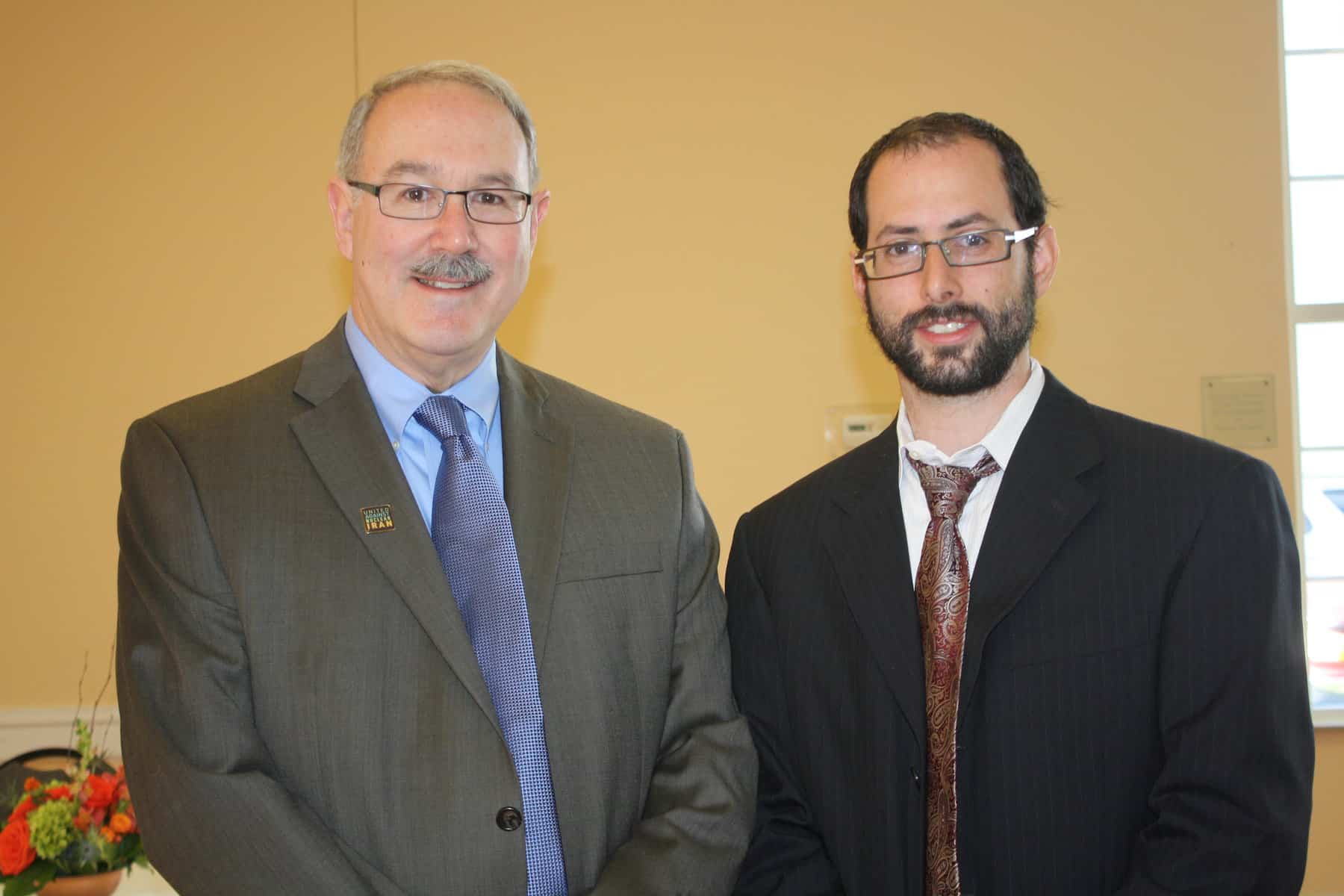Last month I attended a powerful and very well attended presentation at B’nai Israel Congregation sponsored by United Jewish Federation of Tidewater’s Community Relations Council. Bob Feferman, outreach coordinator for the not-for-profit and non-partisan advocacy group United Against Nuclear Iran (UANI), spoke on Preventing a Nuclear-Armed Iran.
I admit that I never heard of this group, but was impressed to learn that it was founded in 2008 by heavyweights such as Ambassador Richard Holbrook, Dennis Ross, and former CIA chief Jim Woolsey, and that it’s current board of directors includes a former director of Israel’s Mossad and England’s MI6. With those sponsors, I was ready to believe that this group knows what it was talking about, both as to the extent of the problem and the details of their proposed solution.
Feferman made a strong case that it is critical to both Israel and America that individuals help them grow their grass-roots lobbying effort to not only keep existing sanctions against Iran in place, but to also tighten them. I was impressed to learn that their program has made significant progress in getting individual states and companies to pressure Iran to choose between having a functioning economy or a nuclear bomb, and that each of us could make a real difference in this effort.
The need for the success of UANI’s program is clear, as Iran is the world’s leading state sponsor of terrorism via Hezbollah, Hamas, and al-Qaeda. In addition to helping implement many rocket attacks against Israel, Iran is already responsible for terror attacks on Americans in Beirut (1983), the Jewish Community Center in Buenos Aires (1996), Khobar Towers in Saudi Arabia (1996), and two al-Quaeda attacks on American embassies in Africa (1998), not to mention the deaths of U.S. soldiers in Iraq and Afghanistan including at least 54 soldiers from Virginia. UNAI’s fear is that if Iran is already responsible for so much terror activity, imagine how much worse their actions will become if they feel they are untouchable after developing the protection from attack that having a nuclear bomb can provide.
Iran is clear about it’s genocidal intentions toward Israel. In 2012, Supreme Leader Ayatollah Khamenei said, “The Zionist regime is a real cancerous tumor that should be cut, and will be cut, God willing.” We ignored similar ranting from Hitler who didn’t have nuclear power to back up his threat, so how much more frightening is this threat from Iran. If sanctions don’t work, military action against Iran is our last resort, and our recent military response to terrorism has not been without difficulties, to say the least. Therefore, we all have to work VERY hard to help make these sanctions work. Fortunately, UANI offers us a way to do this.
UANI bases its sanction plan on their opinion that the leadership of Iran, no matter how much they hate the West and favor Jihad, has a higher goal of remaining in power. One major key to Iran’s support is based on their oil revenue, but a second is that they control much of Iran’s economy through the Iranian Revolutionary Guard Corps (IRGC), and siphon off a large amount of funds from all of Iran’s economy to use to sponsor terrorism. Crippling this economy is the goal of sanctions, and UNAI feels that sanctions have the possibility of stopping Iran’s nuclear development without the need of military action.
UNAI’s multi-pronged plan to increase the pressure on Iran to give up their nuclear weapon goal is simple, logical, and effective. They have developed model legislation for adoption by U.S. federal and state governments to sever the regime from international trade and financial markets and prohibit investment in Iran. This covers banking, insurance, shipping, automotive manufacturing, and other sectors. Their legislative initiatives have already resulted in passing the Comprehensive Iran Sanctions, Accountability, and Divestment Act of 2010, the Iran Threat Reduction Act, and in state legislative and regulatory initiatives across the U.S.
These actions have hurt Iran. Now, UANI is working to impose a full economic blockade by forcing companies trading with Iran to revise their cost/benefit analysis by realizing that their customer base will put their reputation, sales, and profits on the line unless they stop doing business with the country. Well known companies such as GE , Maersk, Volvo, Volkswagen, BMW, Lufthansa, and others have already succumbed to letter writing campaigns to their CEO’s. This is where individual citizens can add weight to this campaign.
UANI’s web site, www.UANI.com has fast and easy ways for people to sign petitions to be sent to the U.S. government, individual states, and companies. Once involved, people can use social media and mailing lists to get friends and neighbors involved. To add force to my belief that UANI is on the right track, I was interested to read a large headline in a recent issue of The Virginian-Pilot proclaiming “Nuclear sanctions put the brakes on Iran’s auto industry” which has already dropped 40% in the last two years.
I’m happy to report that I’ve signed up on the UANI website, and hope that all readers of this article will also do so. As Hillel said, “If not now, when?”
For more information check CRC’s Iran resource page at www.jewishva.org/iran.
by Arthur Rosenfeld


